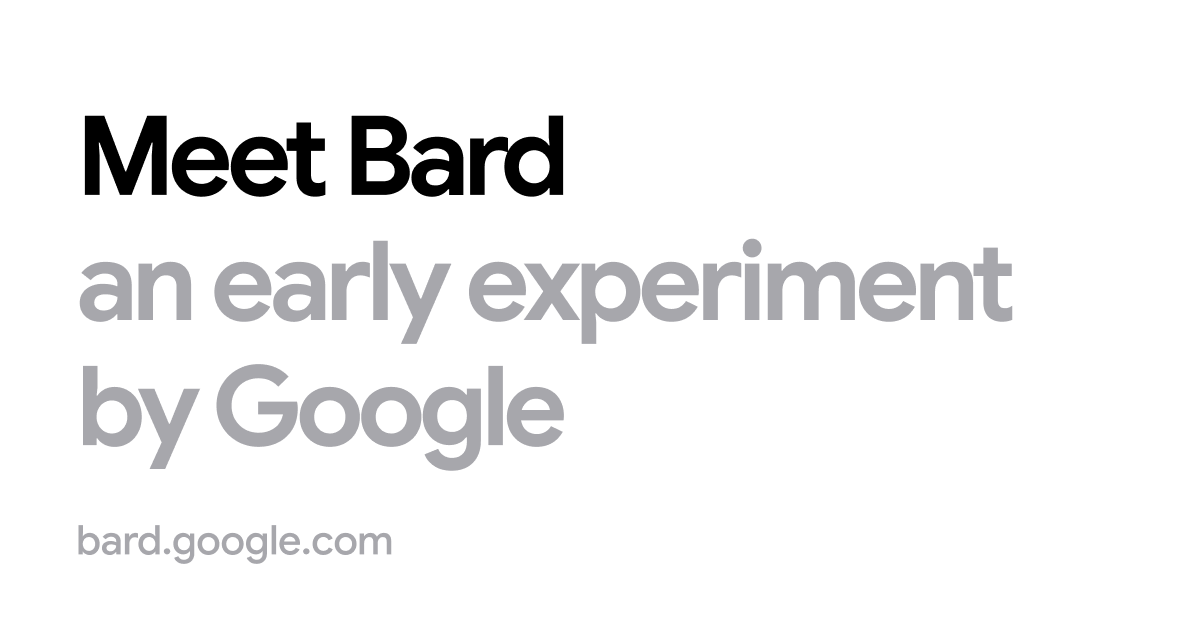💡️S3T Oct 6 2023: Indigenous Innovators, LMM, Real Estate, RIP Free Mkt? Telegram Wallet, Ownership mindset Part 2

If you are receiving this email from a friend and want to sign up for the S3T Newsletter or paid membership, visit S3T.ORG and sign up today!
In this edition of S3T: What leaders are talking about this week
- Special Feature: Indigenous People's Day Oct 9: Indigenous People are innovators worthy to be our mentors. Indigenous Doulas are improving maternal health outcomes. Looking back: How Native Hawaiian Women regained their power to rule.
- Macro Economics: Job Market normalizing, Real Estate outlook, Global vs Local Economics.
- Emerging Tech: LMMs, Fine-grained control for Autonomous Language Agents, Telegram's Crypto Capabilities and why they're not available in the US.
- For Paid Memberships: 6 Tactics for Kindling an Ownership Mindset in Stakeholders.
🔊 Listen to this edition on the S3T Podcast
Opinions expressed are those of the individuals and do not reflect the official positions of companies or organizations those individuals may be affiliated with. Not financial advice. Authors or guests may hold assets discussed.
Indigenous Innovators
Monday, October 9 is Indigenous People's Day, and this marks the 3rd year it has been officially observed in the US (see Presidential Proclamations for 2021 and 2022). This is a great opportunity for us to learn and reflect. Here are some points that caught my attention recently.
In Suspending Damage: A Letter to Communities (PDF) Eve Tuck notes that well-intentioned researchers have often focused on the "damage done" to indigenous peoples and their environment and culture.
"This kind of research operates with a flawed theory of change: it is often used to leverage reparations or resources for marginalized communities yet simultaneously reinforces and reinscribes a one-dimensional notion of these people as depleted, ruined, and hopeless."
Tuck acknowledges that injustice should be recognized and addressed, but argues that we should be careful of viewing Indigenous people in a one-dimensional manner.
We think of Indigenous people as victims. But they are also innovators worthy of being mentors to the rest of the world:
- These 7 Indigenous inventions revolutionized healthcare: Syringes, pain relievers, oral contraceptives, sun screen, baby bottles, mouth wash, suppositories.
- We can't imagine not having these inventions: Canoes, rubber, sign language, tar/asphalt, suspension bridges and more (another list here).
- They evolved enduring models of sustainable living that developed countries are only beginning to learn about.
- Indigenous peoples are the world's biggest conservationists and rarely get the credit they deserve.
Indigenous people have made and continue to make high-value contributions to the world.
It's important to call out cases where injustice has been done to a group of people and support them with compassion and purpose. It's also important not to overlook or diminish the contributions, strengths, gifts, and potential of a group.

Indigenous Doulas are addressing maternal death rates
Indigenous Doulas like Hummingbird Indigenous Family Services are making a positive difference in maternal outcomes, providing care and support that is saving lives, and helping address the rising maternal mortality rates in the US.
This recent JAMA study of state-level data in the US found that maternal deaths increased sharply during the 20-year period between 1999 and 2019.
Maternal deaths per 100,000 women (1999 to 2019):
- American Indian and Alaska Native: 14.0 to 49.2
- Black: 26.7 to 55.4
- Asian, Native Hawaiian, or Other Pacific Islander: 9.6 to 20.9
- Hispanic: 9.6 to 19.1
- White: 9.4 to 26.3
Tragic, shocking numbers, in an era when we have the technology, data, and medical breakthroughs to do much better. I appreciate how Indigenous Doulas are taking up this vital change leadership challenge and making a difference for mothers and babies.
Further reading on maternal mortality rates and the positive impacts of doulas:
- Lancet - Doula support enabled 50% or greater reductions in the likelihood of cesarean, postpartum depression or postpartum anxiety.
- National Health Library - broad positive impacts of doulas on maternal health outcomes.
- Drexel - The Role of Doulas in Addressing Black Women's Maternal Mortality.
- Office of Health Policy - Doula Care and Maternal Health: An Evidence Review (PDF)

Looking Back: Native Hawaiian Women and the 19th Amendment
Did you know that Native Hawaiian women routinely held positions of power prior to Hawaii's annexation by the United States? This excellent historical piece reveals the struggle of Native Hawaiian Women to regain their ability to govern after Hawaii was annexed by the United States. The 19th Amendment which gave women the right to vote, did not allow the right to hold office.
Nora McGreevy shares the untold story of the five additional years of advocacy that it took for the first woman to be able to hold a seat in the Hawaiian Territorial Legislature.
🤖️ Emerging Tech
Not LLMs ...LMMs
Large Multimodal Models is a new phrase referring to Large Language Models that have been extended with video or audio...ie multi-sensory skills. This paper describes the working fundamentals - ie computer vision and pattern recognition - the new capabilities that can be enabled. Many of the examples focus on giving ChatGPT an image which it then converts into code (ie JSON) that describes the image.
ChatGPT Vision takes an image of groceries and converts it to JSON based on the instructions.
— Mckay Wrigley (@mckaywrigley) October 1, 2023
GPT-4V is an image processing supertool. pic.twitter.com/Vx7loyvJNi
ChatGPT's introduction of vision capabilities made a big splash this week. Bard has a similar capability:

More fine-grained control for Autonomous Language Agents
A new paper proposes an open-source Python framework for autonomous language agents; think chatbots that can perform more complex tasks and interact with people or system components. The creators hope to enable better performance through more fine-grained control. Full paper and code are available here on arxiv.org.
Telegram's Crypto Capabilities
Telegram the privacy-first chat app, is adding a crypto wallet feature that will allow users to self custody their own digital funds. The wallet will be available globally, except in the US (due to lack of regulatory clarity). Context on SEC's and Telegram's previous legal battles. Telegram has 800 million monthly active users. Some expect Telegram to follow the WeChat playbook to build out an ecosystem of social and financial services.
🗺️ Macro Economics
Job market normalizing - maybe
Job growth is slowing but still steady, with 187,000 new jobs in August. Some think the job market may be returning to pre-pandemic norms (ie lower wages).
Real Estate market getting unstuck?
Hints of hope for homebuyers: Home inventory increased 1.8% in September. 37% of homes on the market have reduced prices, as real estate agents focus on managing buyer & seller expectations.
Notable: Lyn Alden, Matthew Lisiak, and Saifdean Ammous are selling economics books at a new bookstore The Saifhouse which - appropriately - accepts Bitcoin as payment.
Global vs. Local Economics
The Economist is worried about the decline of free market globalization and the rise of what it calls "homeland economics". "Governments are jettisoning the principles that made the world rich" huffs the tagline of this piece Are Free Markets History?
On the other side of the debate, this Bangkok Post op-ed by Antara Haldara offers an intriguing - perhaps premature - obituary of the Chicago School free market economics. The author notes the unsavory origin story of the Chicago School's principles (Pinochet's Chile), and correctly asserts that the free market idea has serious limitations:
- The actions of individuals and firms "routinely deviate from economic rationality"
- "People make decisions with 'bounded rationality' (limited information), 'bounded willpower' (knowing better, but doing something anyway), and...bounded self-interest (showing concern for more than one's own material welfare)"
In other words, a free market is not "all there is" and it certainly is no substitute for values and conscience.
Special Feature for Paying Members
🧭 How to Kindle an Ownership Mindset in Key Stakeholders: A Guide for Change Leaders
Kindling an ownership mindset in key stakeholders and partners can make a profound difference in the success of an initiative, by opening doors to resources, connections, increased influence, and crucial decisions. Having the support and sponsorship of key stakeholders helps to position your team for greater success.
Cultivating an Ownership Mindset in Non-obligated parties
For many change leaders, connecting with key stakeholders is a challenge:
- These individuals or groups are not typically easy to access.
- These individuals or groups may not initially see themselves as stakeholders or potential partners at all.
Because these parties don't report to you, and aren't bound by a contract or other agreement, they can be the most difficult to reach and align with.
How do you get key stakeholders—who have no direct reporting relationship or obligation to you—invested in your mission?
Let's level set on what's required
Recognize this is an investment
Cultivating an ownership mindset in your key stakeholders requires an investment on your part:
- At the outset of an initiative, it's an investment of time and relationship building so you can ensure that the outcome is clearly understood and cared about by the parties who need to work together to make it happen.
- Throughout the duration of the initiative, it's an ongoing investment to ensure that the ownership mindset is maintained by all of the contributing parties. Cultivating an ownership mindset is a continuous effort.
It is not something that you simply do in the beginning of an initiative and then forget about it
Understand the risk and effort you may be asking stakeholders to take on
When you ask for the involvement and commitment of a stakeholder, it helps for you to be aware of what they may already be involved in, what responsibilities they carry, and what constraints they may have. You also want to have an awareness of the level of effort and level of risk you may be asking them to take on. Typically it is better to start small - asking for small commitments or steps, that allow you to get acquainted and build trust. Then proceed to higher levels of commitment from there.
The following Risk x Effort matrix illustrates a hypothetical path that a stakeholder might take to higher and higher levels of commitment to your cause.

Now that you understand these points, you are ready to learn six tactics that will help you build successful working relationships with key stakeholders.
6 Tactics that will help you kindle an ownership mindset and lasting commitment in your key stakeholders.
Here are the success tactics you can use to kindle an ownership mindset with key stakeholders who have no obligation to help, but could make a significant positive difference if they did.

